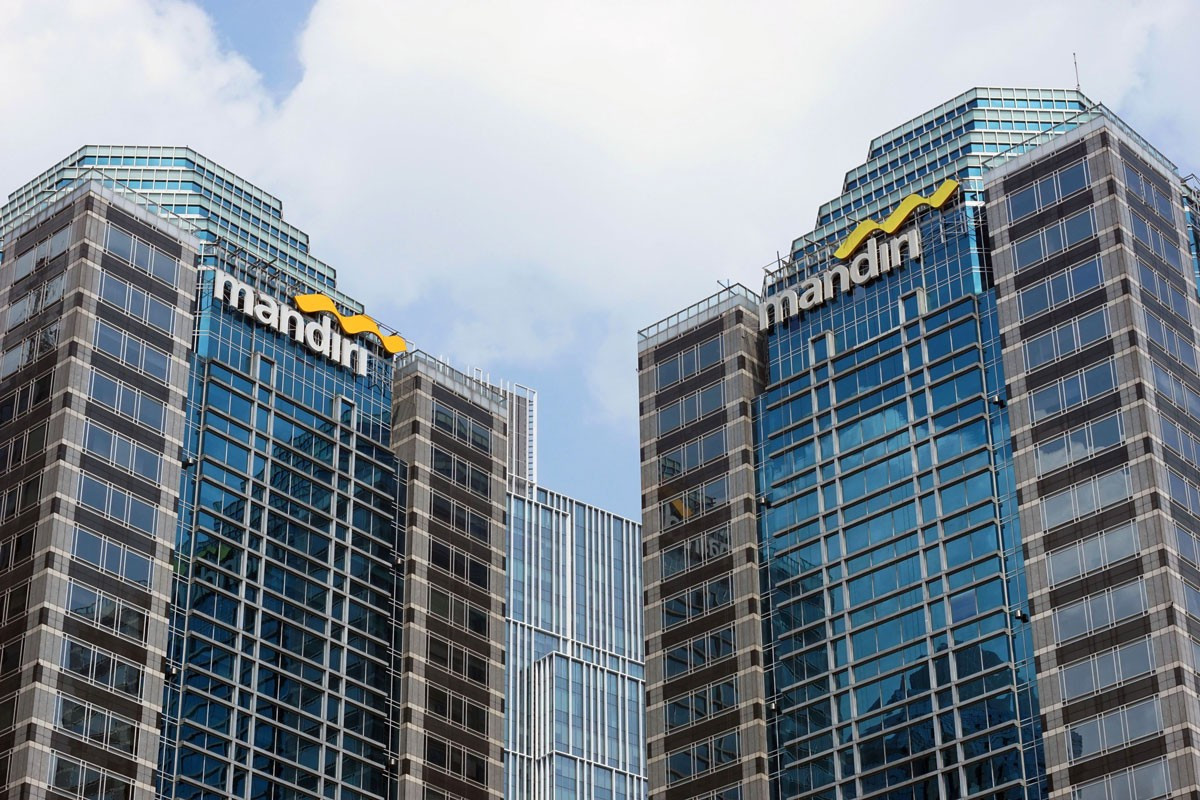News
Bank Mandiri reshuffles leadership amid Himbara-wide downturn
Tenggara Strategics August 15, 2025 State-owned Bank Mandiri buildings in Jakarta pictured in this undated file photo. (Courtesy of Bank Mandiri)
State-owned Bank Mandiri buildings in Jakarta pictured in this undated file photo. (Courtesy of Bank Mandiri)
State-owned lender Bank Mandiri recently announced a major leadership shake-up to restructure both the Board of Commissioners (BoC) and Board of Directors (BoD). The changes come as lenders grouped in the Association of State-Owned Banks (Himbara) face mounting pressure from slowing financial performance, worsened by the banking industry's loan disbursement slowdown and increasing burdens from government-mandated programs.
At an extraordinary general shareholders meeting (RUPSLB) on Aug. 4, Bank Mandiri promoted former deputy president director Riduan to replace Darmawan Junaidi as president director and appointed Henry Panjaitan, formerly business director at PT Jaminan Kredit Indonesia (Jamkrindo), to replace Riduan.
Other key changes included the appointment of former information technology director Timothy Utama as operations director to replace Toni E.B. Subari, with senior executive vice president of digital banking Sunarto Xie stepping into Timothy's prior role. Meanwhile, Bank Mandiri recalled Zulkifli Zaini, who was president director in 2010-2013, to serve as independent commissioner.
This marks Bank Mandiri’s second RUPSLB this year, with the first held in March. The latest reshuffle means Darmawan’s second five-year term as president director lasted less than five months, making it one of the shortest tenures in the bank’s recent history. The abrupt leadership change also signals growing dissatisfaction with the bank’s performance in the first half (H1) of 2025, mirroring broader concerns across Himbara.
Bank Negara Indonesia (BNI) and Bank Rakyat Indonesia (BRI) both recorded year-on-year (yoy) declines in net income in H1 2025, respectively falling 5.6 percent to Rp 10.1 trillion (US$620 million)) and 11.5 percent to Rp 26.27 trillion, in a continuation of a downward trend over the past two years. Himbara’s collective net income growth plummeted from 22.86 percent yoy in 2023 to just 2.08 percent in 2024, and then shrank 11.26 percent yoy to Rp 31.34 trillion in the first quarter (Q1) of 2025.
According to data from the Financial Services Authority (OJK), undisbursed loans at Himbara banks rose 15.64 percent yoy to Rp 470.39 trillion as of May 2025, while disbursed loan growth slowed to 8.26 percent yoy in the same period to Rp 3.69 quadrillion. This decline was slightly below the industry average of 8.43 percent, signaling cooling credit expansion. Meanwhile, industry-wide loan growth declined this year from 10.27 percent in January to 7.77 percent in June, the slowest pace since March 2022.
Although gross domestic product growth accelerated to 5.12 percent in Q2 2025, economists have cast doubt on the figure’s credibility, saying that underlying indicators still pointed to a modest recovery at best. Despite the downturn, some private banks have continued to outperform Himbara’s performance in H1 2025. Major private lender Bank Central Asia (BCA) posted an 8 percent net income growth to Rp 29 trillion in H1 2025, while Bank Permata recorded a 7.6 percent increase to Rp 1.6 trillion in the first half.
Amid the underperformance of Himbara banks, the Daya Anagata Nusantara Investment Management Agency (Danantara) issued a directive that directors at state-owned enterprises (SOEs) would receive incentives and bonuses only if their companies demonstrated sustained financial performance. The state asset fund also banned incentives and bonuses for SOE commissioners, but the policy lacks enforceability because it was not issued through a formal decree from the SOEs Ministry, raising concerns that SOEs may continue with current incentive practices. Additionally, 30 deputy ministers still serve as commissioners at SOEs whose assets are managed by Danantara, including Bank Mandiri, BRI and BTN.
Himbara banks’ underperformance raises broader concerns, especially given their role in executing major government programs. These include Rp 130 trillion in financing for President Prabowo Subianto’s “3 million homes” social housing program, as well as funding for the recently launched 80,081 Red and White Rural Cooperatives (KDMP). The KDMP program carries potential losses of up to Rp 85.96 trillion over six years, further straining the financial condition of state-owned banks.
As government expectations for state-owned banks continue to grow, the challenge lies in balancing policy-driven mandates with the need for financial sustainability and institutional integrity. The recent leadership shake-up at Bank Mandiri may signal a turning point, but without stronger governance frameworks and a clearer separation between commercial and political objectives, Himbara’s ability to deliver long-term value remains uncertain.

